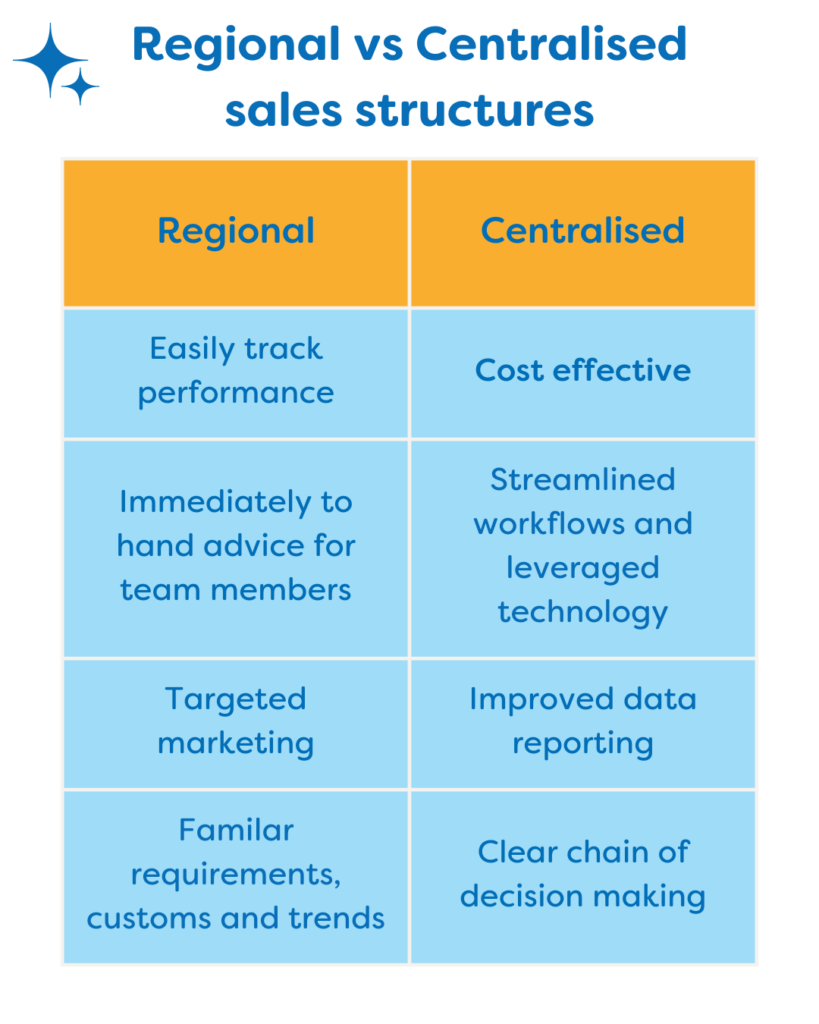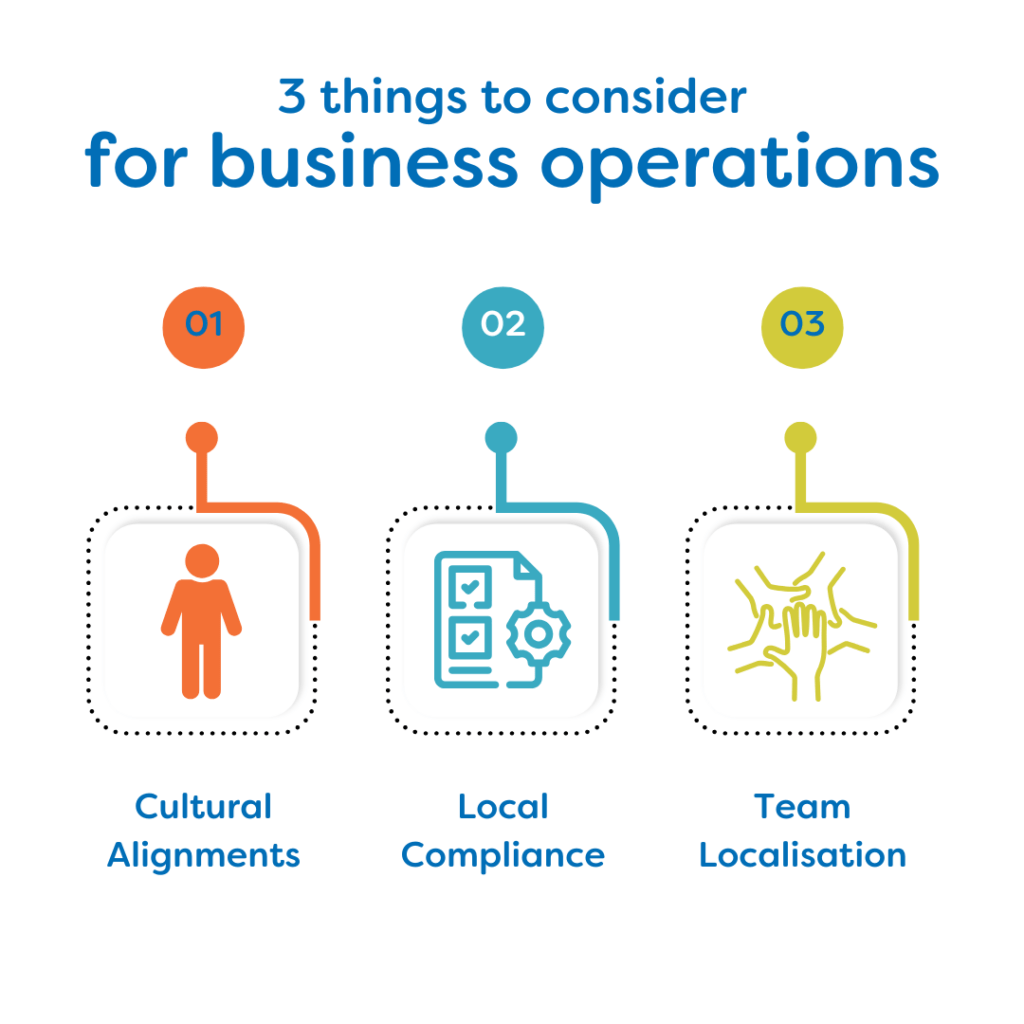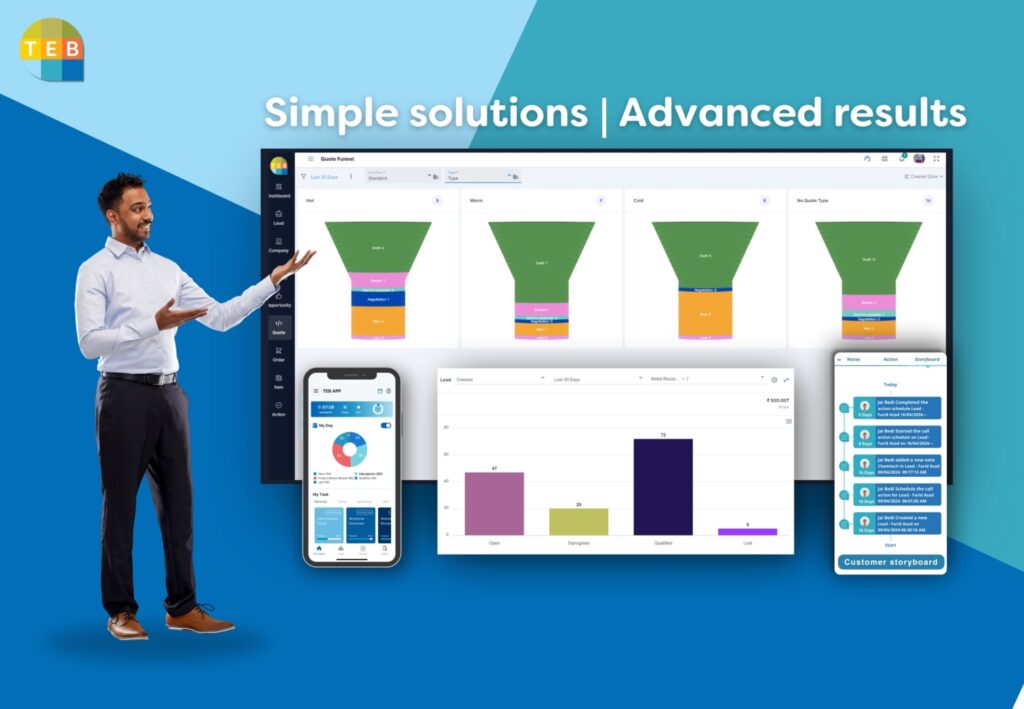
International expansion can be complex and highly involved at the best of times, and when you factor in multiple geographic locations and international action, it becomes all the more complicated to determine how the global sales team structure is going to work.
To help you manage a smooth international expansion and structuring of your global sales team, this article is going to look at key considerations when selling across borders, regional vs. centralised sales structures, cultural alignments and localisation, and the technology you need to make managing a global salesforce a successful reality.
In a growingly digital world, where borders seem to matter less to customers, the ability to expand out and reach new audiences provides a compelling reason for expansion.
In 2025 global business expansion has seen a rise in remote work and digital nomads, with some countries offering specific visas and tailored programs to lean into this trend.
The World Trade Organisation (WTO) expect to see an expansion of world trade in 2025 and 2026, despite issues with recent tariff disturbances in the US, and disruption across different markets as a result
Your global sales team structure is going to depend on what your business is doing, where your customers are located, how they prefer to be engaged with, and what sort of infrastructure you have in place to make these global sales happen.
When looking at selling across borders, the key considerations that many businesses have to evaluate include:
The way in which you structure your sales and overall management system will have a dramatic impact on the way in which your teams are able to work.
When you are handling a lot of teams in different locations, you need to carefully consider whether you want to have a regional (local) hub for decision making and actions, or whether you want everything centralised in a single location.
There are pros and cons for both routes, and we will have a brief look at the most common ones now:

Regional Structure
Pros
Cons
Centralised Structure
Pros
Cons
Whichever one you decide to go for, it is vital that everyone is aware of how the global sales team structure is implemented, and what the chains of command and communication are.
Different regions and countries often have different standards, laws, and expectations when it comes to business practices. This does not just impact the way in which your business is setup, but also how your sales teams operate when going through international expansion.

Cultural Alignments
Some cultures may be significantly different to how you are used to operating, and there may be factors such as religion, politics, etc that has a powerful influence on business expectations.
In order to integrate and ensure you are legally compliant, it is important that you take the time to investigate the region, understand the laws and any unwritten ‘rules’, and adjust your sales strategy to fit.
Local Compliance
Making use of digital technology, CRM software, and team management tools to keep notes on the local trends, trends, expectations, and important dates, can be incredibly useful – and if specific clients have specific needs, then annotating their records with the data can save a lot of potential problems in the future!
Team Localisation
Whether you bring in local experts or train up incoming staff, it is essential that your team are given the opportunity to learn about their surroundings, get used to the culture, and develop techniques and successful sales plans whilst they gain a deeper understanding of the audience they will be selling to.
Choosing the right tools, technologies, and digital infrastructure is going to be a business-critical decision in order to manage your international expansion.
You need to ensure that everything is capable of working together, is supported with sufficient functionality to handle localisation and global variables and allows you to operate with specific structured brand standards.
With these points in mind, there are a number of key technologies that you need to ensure you have in place and ready to go before you start your expansion operations.
Your own specific circumstances, activities, and business size may see some variation in the number and types of platforms you need, but in general you should be looking at:
As your business grows, develops, and expands, you need to be certain that you have reliable tools and the right technology in place to support your business at every level.
When you bring TEB into your company, you are benefiting from years of experience, a platform designed to grow alongside you no matter how large you expand, and innovative game changing technology that allows your team to do their best at all times. TEB will somplify your processes and tracking during international expansion to make the process feel easy.
Amongst the many benefits that you can expect from TEB, your international sales teams and their managers will enjoy:

Take your international business options to their fullest potential and embrace technology that will make a genuine positive difference to your trading.
Book a demo with our team today and give your sales teams the unified, customised, and standardised business infrastructure that will support them and your business to its most profitable outcomes.